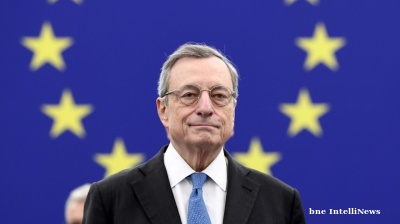Taiwan enjoys nothing more than basking in international praise as a beacon of liberal democracy in Asia.
It has legalised same-sex marriage, boasts a vibrant free press, and consistently ranks near the top of global freedom indices. Western governments and media frequently hold it up as a model of progressive governance in a region where limited freedoms still prevail. Yet beneath the liberal sheen lies a glaring contradiction - one that reveals a selective interpretation of equality: Taiwan’s compulsory national service remains a male-only obligation.
For all its talk of inclusivity and gender parity, the island’s policy of forcing only men to serve in the armed forces exposes a deeper societal hypocrisy. In late 2022, President Tsai Ing-wen extended the length of mandatory service for men from four months to one year, citing the rising threat from China. The move was broadly accepted by the public as necessary for national security.
But it also quietly reaffirmed a gender divide that modern Taiwan, so often lauded for its progressiveness in other areas, has failed to confront.
In a society that prides itself on gender equality, with a female president and a parliament comprising over 40% women at times, the notion that only men must bear the burden of defence is increasingly archaic.
Taiwan’s Ministry of National Defence insists that women may “volunteer” for service, a phrasing that sounds magnanimous but in truth cements inequality firmly in place at the government level. Volunteering regardless of linguistic interpretation is not equality; it is an opt-in privilege extended by a patriarchal institution that still assumes men alone have the duty to defend the nation.
The irony becomes sharper when viewed against the island’s broader political narrative. Taipei routinely contrasts its democratic freedoms with Beijing’s authoritarianism, presenting itself as a country that upholds human rights and fairness, unlike the larger entity across the Taiwan Strait. Taiwanese diplomats frequently highlight the country’s gender equality achievements in international forums. Yet when it comes to the civic responsibilities of citizenship, equality stops at the barracks gate.
Supporters of the current system often argue that women already serve in critical civilian and support roles during wartime, or that forcing women into the military could be politically unpopular. Others point to biology, claiming men are physically more suited for combat. Such arguments echo the conservative logic once used to keep women out of politics, boardrooms, and universities.
Yet Taiwan, supposedly a bastion of modernity, now finds itself clinging to the same outdated assumptions that it has otherwise spent decades dismantling. Even within Taiwan, this inconsistency has not gone unnoticed. Feminist groups and some lawmakers have begun to question why the conversation around national service reform has excluded gender equality. Yet these calls rarely make headlines - or policy – and are largely ignored.
The defence ministry continues to bleat about “logistical challenges” and “limited facilities for women” as reasons for maintaining the status quo. There are nothing more than explanations that sound increasingly hollow in a country that manufactures the world’s most advanced semiconductors.
The hypocrisy cuts both ways politically. The ruling Democratic ‘Progressive’ Party (DPP), which campaigns on equality and social justice, has shown little appetite for reforming conscription laws that might test its popularity come election time.
The opposition Kuomintang (KMT), meanwhile ever keen to court traditionalists, also stays silent. Thus, Taiwan’s entire political establishment colludes in maintaining a system of gendered inequality, even as it touts its liberal credentials abroad.
Contrast this with nations such as Israel, Norway, or Sweden, where women are subject to compulsory or near-compulsory service. These countries have managed to integrate gender equality into national defence without suffering the social collapse that Taiwanese officials so fear.
Indeed, in Israel, women make up nearly half of the armed forces. This example alone shows that equality and readiness need not be mutually exclusive and can in fact, reinforce each other.
Moreover, Taiwan’s demographic crisis makes reform not only a moral imperative but a practical one. With one of the world’s lowest birth rates, the pool of eligible male conscripts is shrinking fast. To this end, expanding service to include women would not only align Taiwan with its professed values - but also strengthen its military capacity. Continuing to rely solely on men in the military is both unsustainable and unjust.
There is also a deeper philosophical issue at play across Taiwan. A truly equal society cannot claim that half of its citizens owe the nation a duty that the other half may choose – at will - to ignore. Civic equality in the free world is about shared obligation as much as shared rights.
As such, Taiwan’s insistence that women should have access to every privilege of citizenship - from political office to professional advancement - but not its responsibilities, undermines the moral foundation of its democracy.
The defenders of the status quo will no doubt counter that wartime realities demand pragmatism, not idealism. But that is precisely the point. If Taiwan genuinely believes in the democratic values it proclaims such as fairness, inclusion, equality before the law, then it must be willing to apply them even when inconvenient. Otherwise, it risks revealing itself as progressive only when it costs nothing.
Taiwan must first confront its own double standards. Equality, if it is to mean anything, must be consistent - in the courtroom, in the workplace, and on the battlefield too.
Until President Lai, the ruling DPP and nation as a whole accept this, Taiwan’s rhetoric of fairness will be meaningless and hollow.
Features

INTERVIEW: Can Albania’s tourism miracle last?
As social media brings in the crowds, the head of the Albanian Tour Operators Association tells bne IntelliNews Albania should turn away from mass-market tourism and focus on higher-value offerings.

Russian e-commerce giant Wildberries goes on a mysterious M&A spree
Russian e-commerce giant goes on M&A spree Almost a year after the controversial merger with a leading outdoor advertising firm, Russia’s leading e-commerce site Wildberries is indulging in a fresh bout of eyebrow raising deals.

US expands oil sanctions on Russia
US President Donald Trump imposed his first sanctions on Russia’s two largest oil companies on October 22, the state-owned Rosneft and the privately-owned Lukoil in the latest flip flop by the US president.

Draghi urges ‘pragmatic federalism’ as EU faces defeat in Ukraine and economic crises
The European Union must embrace “pragmatic federalism” to respond to mounting global and internal challenges, said former Italian prime minister Mario Draghi of Europe’s failure to face an accelerating slide into irrelevance.



.jpg)
